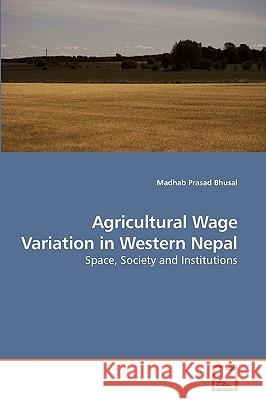Agricultural Wage Variation in Western Nepal » książka
Agricultural Wage Variation in Western Nepal
ISBN-13: 9783639212761 / Angielski / Miękka / 2009 / 120 str.
Since the government freed the bonded labour system in Nepal at 2000, the agrarian practices have been changed dramatically. However the change cannot still be considered as the revolution in agriculture. The series of revolutions in the socio- political context of the country, perhaps, do not solely contribute to mutinies labour system and socio-cultural milieu. The wage in rural agriculture in western Nepal still varies with space, society, and institutions. The distance to the market can be considered, but not all, one of the important factors contributing different types of engagement among landlord and labour. Besides this, wage variation within a village is more interesting due to institutional complexity. Contrary to the segmented theory, the analysis presents more stable job with lower payment for the secondary segment of rural agricultural labour. Devaluation theory better explains rural agricultural labour market, however, several social customs and institutions have dissected the theories to use directly to the labour market. This book therefore, gives an interesting and varying picture of a rural agriculture labour market.











